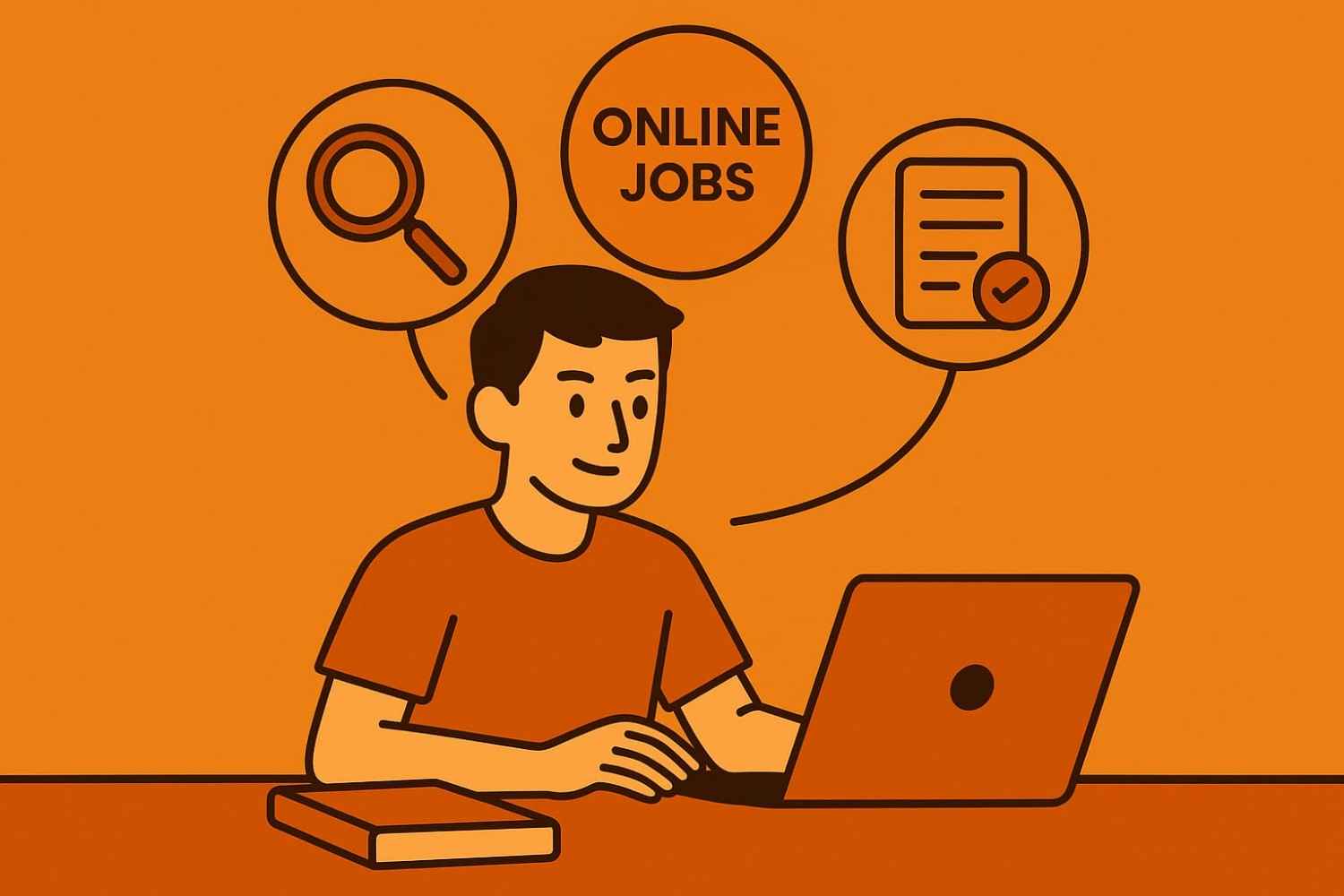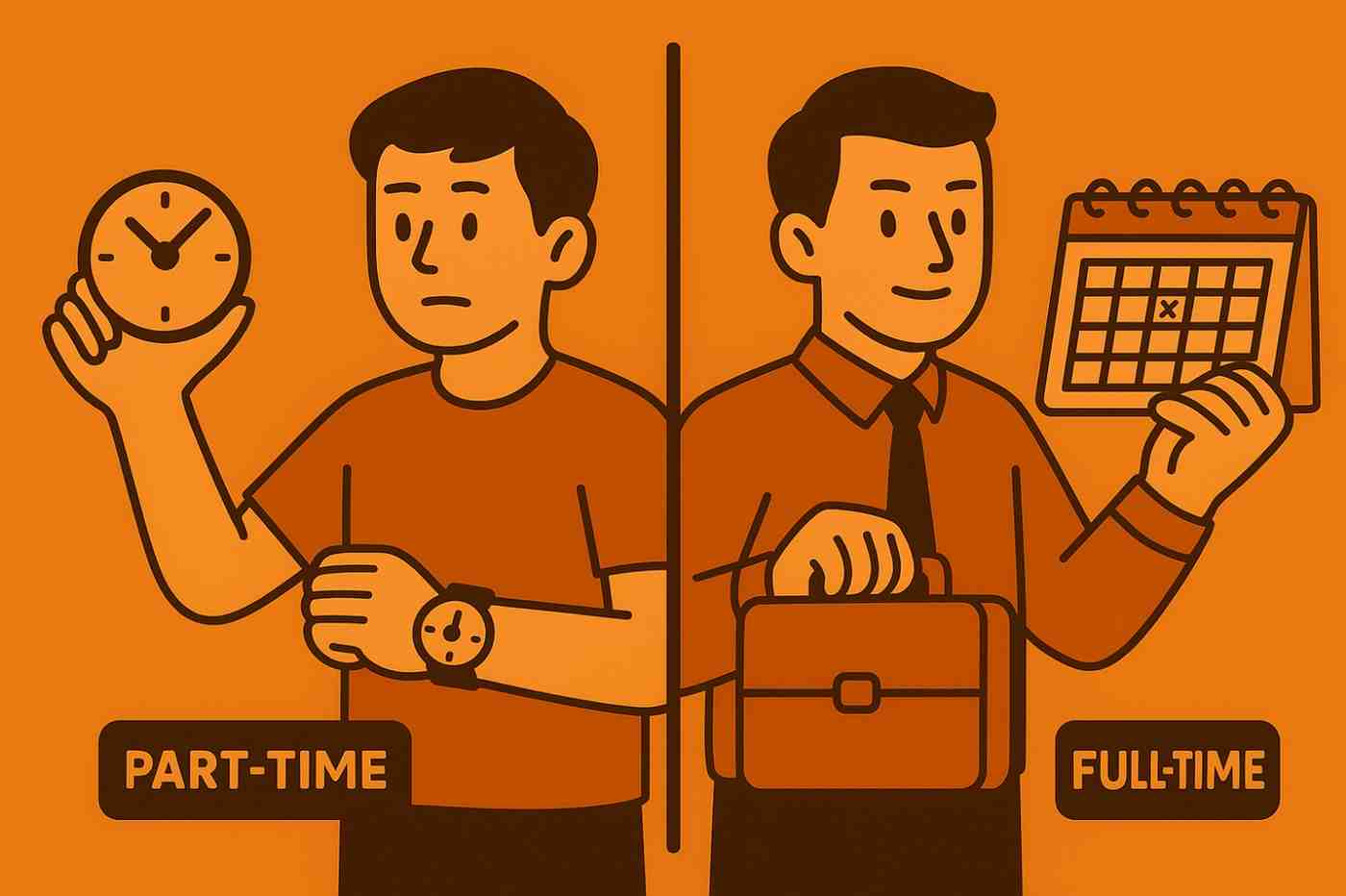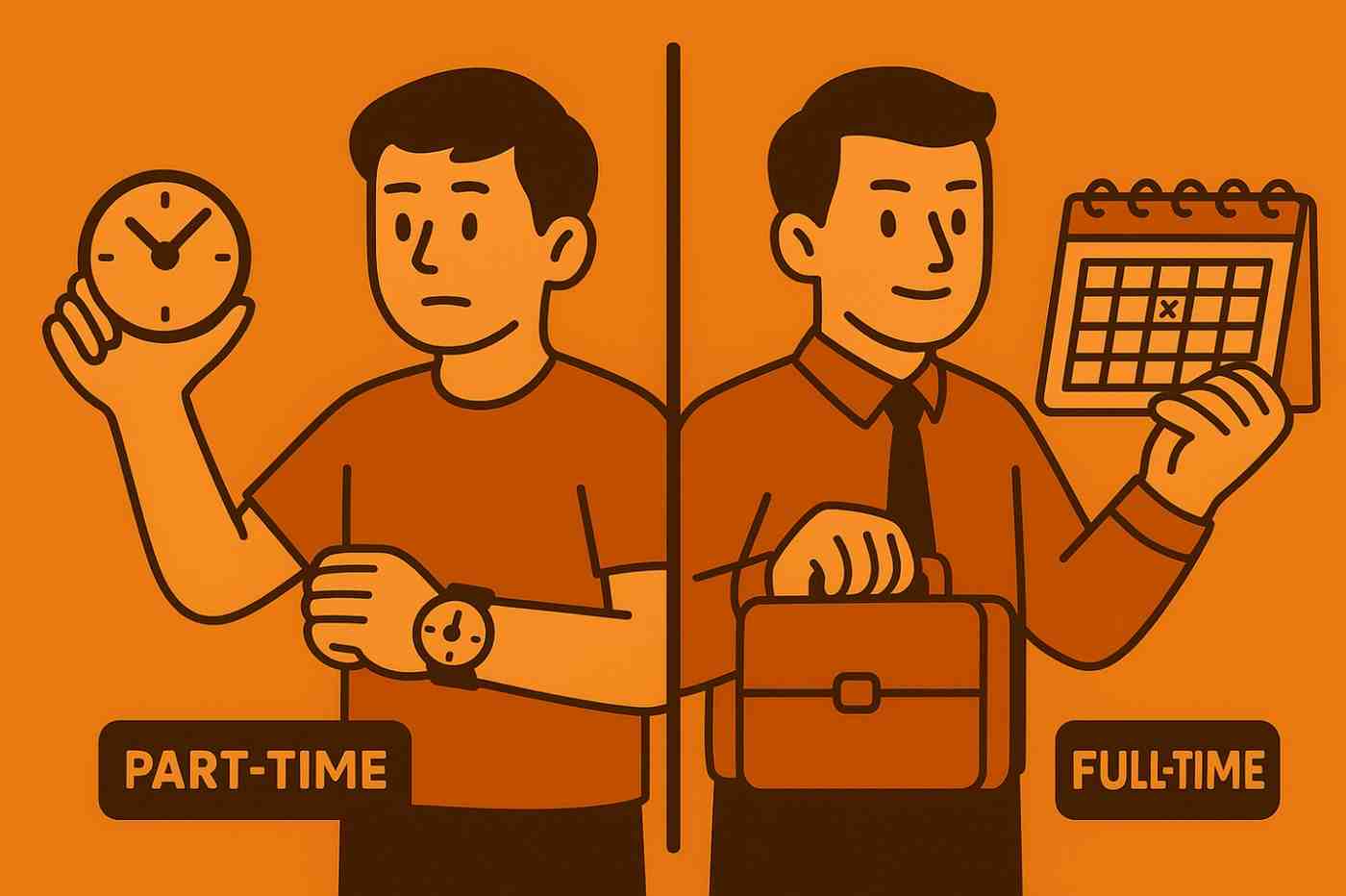Part-Time vs Full-Time Jobs: Which One Is Right for You?

Discover the best platforms and methods to find real online part-time jobs with no investment. Perfect for students,...

Looking for ways to earn more on weekends? Check out the best weekend part-time jobs for extra income, flexibility,...

Wondering whether to choose a part-time or full-time job? Learn the key differences, pros and cons, and how to...
.jpeg)
Applying for a part-time job? Learn how to write a strong part-time job resume with real examples, formatting tips,...

Struggling to manage your part-time job with school or a second job? Learn practical tips and tools to stay...

Looking for flexible remote jobs? Here's a list of beginner-friendly work-from-home part-time jobs with tips to get...

Understand which skills part-time jobs teach you and how to showcase them for future full-time roles. Includes...

Learn how to find flexible part-time jobs near you or online using job portals, local connections, and smart tools...

Explore top flexible part-time jobs for students. Balance academics and income through tutoring, freelancing,...

You can discuss flexible part-time jobs perfect for housewives and stay-at-home parents. Balance work and family...
Resources
-

Set up personalized job alerts to receive notifications about new job openings that match your...
-

Find part-time job opportunities perfect for students, parents, and professionals seeking...
-

Work from home jobs across industries with flexible hours, competitive pay, and real career...
-

Create professional resumes with easy-to-use resume builders. Choose from templates, get...
-

Kickstart your career with internships tailored for students and graduates — explore paid,...
-

Remote jobs have revolutionized how we work, giving professionals the freedom to contribute from...
-

Find the best fresher jobs and entry-level opportunities across IT, Finance, Marketing, and...

Part-Time vs Full-Time Jobs: Which One Is Right for You?
If you are on the hunt for a new job, one of the first and most important questions you will need to ask yourself is: Do I want a part-time job or a full-time one?
This decision is a major fork in the road of your career path. It affects everything, starting from your income, your free time, your growth opportunities, to even your day-to-day lifestyle.
Some people are ready to jump into a full-time job right after graduation to kickstart their careers. Others prefer to start with part-time gigs to test the waters, earn some money on the side, or balance work with other important life commitments.
But what really sets these two paths apart? And how do you know which one is the right choice for you right now?
Let’s break down the key differences, the pros and cons of each, and how you can decide what suits you best.
What is a Full-Time Job?
A full-time job is what most people think of as a "traditional" job. It represents a significant commitment to a single employer.
Typically, a full-time job means: - You will be working for 35-48 hours per week, depending on the industry and company policy. - You will likely have set shifts, such as a standard 9 a.m. to 6 p.m. schedule, five days a week. - You will be entitled to company benefits, which can include health insurance, a provident fund (PF), paid leave, and performance bonuses. - It is a long-term role that comes with more responsibility and a structured work environment.
Examples of full-time jobs include a Software Developer at a tech company, an Accountant in a consulting firm, or a Sales Manager at a retail chain. Most full-time jobs are stable and offer a clear path for career advancement.
What is a Part-Time Job?
Part-time jobs are all about flexibility. They are designed to fit into your life, rather than your life fitting around them.
Typically, a part-time job means: - You will be working for fewer than 30 hours per week. - You will have variable or shorter shifts, such as evenings, weekends, or just a few days each week. - You will often be paid on an hourly basis, and these roles usually come with limited or no employee benefits. - The work can be short-term, based on a contract, or on-demand.
Examples of part-time jobs include a Retail Assistant on weekends, an Online Tutor for three hours a day, or a freelance graphic designer working on a project basis.
Part-time jobs are an ideal choice for students, parents, or anyone who is looking to earn an income while managing other important responsibilities.
Key Differences: A Closer Look
Let's move beyond the definitions and simplify the comparison between these two work styles.
Work Hours and Commitment - A full-time job is a primary commitment, typically taking up 40 or more hours of your week. - A part-time job is a smaller commitment, usually under 30 hours a week, leaving you time for other things.
Stability and Security - Full-time jobs offer high stability with a long-term contract and a steady role. - Part-time jobs can be less secure, as they are often short-term, contract-based, or the first to be cut during budget reductions.
Benefits and Perks - Full-time employees almost always receive a benefits package, which is a significant part of their total compensation. This can include health insurance, paid time off, and retirement contributions. - Part-time workers rarely receive these benefits and must often cover these costs themselves.
Income and Pay Structure - Full-time jobs provide a higher, stable monthly salary. - Part-time jobs offer a lower total income, but the pay is often flexible and based on the hours you work.
Flexibility and Schedule - Full-time roles usually come with a fixed schedule and less day-to-day flexibility. - Part-time roles are defined by their flexibility, allowing you to design a schedule that works for you.
Career Growth - Full-time jobs offer clear, structured paths for promotions and long-term career growth. - Part-time jobs may not have a formal growth path, and advancement often depends on the company and your consistency.
When to Choose a Full-Time Job
A full-time role is the right choice for you if your primary goals are stability and career advancement.
You should choose a full-time job if you: - Want financial stability and a predictable monthly income. - Prefer a fixed routine and a structured work environment. - Are focused on career progression and want opportunities for promotions. - Value employee benefits like healthcare, paid leave, and retirement plans. - Enjoy working closely with a structured team towards a common goal.
A full-time job is the perfect path if you are looking to build a long-term career in a specific field and want the security that comes with it.
To create a structured, formal resume for your full-time job applications, you can use the JobPe Resume Builder.
When to Choose a Part-Time Job
A part-time role is the ideal choice if your primary need is flexibility.
You should choose a part-time job if you: - Are you a student or a fresher with limited availability due to your class schedule. - Want to earn an income while you are studying or upskilling for a different career. - Already have another job or a major project that you are working on. - Prefer flexible hours or working on fewer days each week. - Are interested in trying out a new field to see if you like it before committing full-time.
Part-time jobs are also a great option if you are transitioning between careers or simply want a better work-life balance.
You can use the JobPe Auto Apply Tool to find roles that match your specific part-time schedule and preferences.
Can You Do Both?
Yes, absolutely. Many people successfully manage a full-time job while taking on part-time gigs or freelance projects on the side.
Some common examples include: - A full-time digital marketer who does freelance writing on the weekends. - A school teacher who provides online tutoring in the evenings. - An office administrator who does event photography gigs on the side.
This can be a great way to boost your income and explore other interests. However, it is important to be mindful of your energy levels to avoid burnout. You should also check your primary employment contract to ensure there are no policies against "moonlighting."
How to Decide What Is Right for You
The best way to make this decision is to be honest with yourself about your current priorities, your financial needs, and your personality.
Ask yourself these key questions: - How many hours can I realistically commit to work each week without feeling overwhelmed? - Do I need a fixed monthly income to cover my expenses, or can I handle some income fluctuations? - Is my primary goal right now to build a long-term career, or is it to earn some short-term income? - Do I have the energy and time management skills to handle two roles if I want to mix both? - What do I value more at this stage of my life: stability or flexibility?
There is no right or wrong answer. It is all about what works for you. Many people even start with part-time jobs and then transition to a full-time role once they have gained some experience and figured out their rhythm.
The Right Job Type Depends on You
Ultimately, the choice between a full-time and a part-time job is a personal one.
Choose the path that matches your life right now. You can always change your direction later as your goals and circumstances evolve.
Whether you are looking for the full stability of a permanent role or the flexible income of a side gig, JobPe provides you with the tools to start your search strong and move fast.
- Resume Builder – Customize your resume for part-time or full-time roles.
- Mock Interviews – Practice for role-specific questions.
- Auto Apply Tool – Apply to more listings in less time.
- Companies – See who is hiring for each type of role now.
- Salaries – Compare the pay for different job types.
- Interview Questions – Prepare with real questions asked by recruiters.
Try both. Learn fast. And grow at your own pace.
